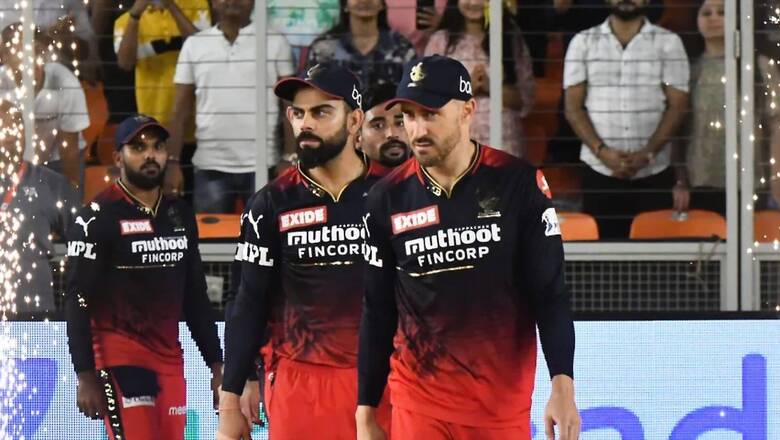
views
Last week, reports emerged that the Union government has set up an inter-ministerial panel to regulate online gaming. This is a good thing. Online gaming is a popular emerging sector with great economic potential that has thus far been hamstrung by regulatory uncertainty. One of the reasons behind this uncertainty lies in the nomenclature. As a catch-all term, online gaming sometimes includes everything from online casinos to fantasy sports platforms such as Dream11. This is unfortunate given that Indian courts have repeatedly distinguished games of skill (such as Dream11) from games of chance (such as online casinos). Primary among the panel’s responsibilities would thus be to build on this distinction by formulating a mechanism to determine whether a game format is skill-dependent. In addition to regulatory clarity, this will also help the nascent industry distance itself from gambling.
The popularity of online skill gaming, especially online fantasy sports platforms (OFSPs), can be gauged readily through the Indian Premier League (IPL). The rapid growth of OSFPs in recent years has been aided and validated by the IPL. In the 2022 edition, Lucknow Super Giants, one of the two new teams, have My 11 Circle, an OFSP, as a principal sponsor. Two years ago, in 2020, another OFSP, Dream11, was the IPL’s title sponsor. New monetary awards have also been introduced in the tournament for athletes that win the most fantasy points in a game.
The promise
The fantasy sports industry finds itself sandwiched between two contrasting realities. The first reality is that of great economic promise. The sector grew at a compound annual growth rate (CAGR) of 212 per cent between 2016 and 2019 and is projected to continue growing, according to a report by Deloitte, at a CAGR of 38 per cent between FY21 and FY27. The same report notes that the total market size of the industry is INR 34,000 crore and that it caters to 13 crore users. According to a NITI Aayog discussion draft, fantasy sports is expected to attract FDI of more than INR 10,000 crore over the next few years, pay over INR 10,000 crores in various taxes and generate more than 5000 direct and 7000 indirect jobs in the short to medium term.
In addition to these direct economic benefits, the growth of OFSPs is also likely to benefit “smaller” sports in India, which have hitherto been under the shadow of cricket. In addition to cricket, many OFSPs also provide contests for sports such as kabaddi, football, hockey, etc. Since performance in a fantasy contest requires one to be relatively well-versed in the nuances of the sport in question, the addition of kabaddi, football, hockey, etc. in OFSPs increases the interest in and consumption of these sports.
The Perils
The second reality facing OFSPs is that of great uncertainty and risk. In the Constitution, gambling is classified under the state list, providing states with the power to regulate or prohibit such activity. Failing to distinguish between gambling and fantasy gaming, various Indian states have either explicitly banned OFSPs or buried them under regulatory ambivalence. In October 2021, Karnataka became the latest state to do so. In February 2022, the Karnataka High Court struck down the ban, allowing OFSPs to operate in the state.
Previously, several high courts, including Punjab and Haryana, Rajasthan and Bombay High Courts, had also struck down similar laws and held fantasy sports as games of skill, protected under Article 19(1)(g) of the constitution.
Courts have used the “dominance factor test” to determine whether outcomes in an activity involving financial stakes are primarily governed by luck (thereby classifying such activity as gambling) or by skill (thereby protected by the constitution as a legitimate business activity).
Despite such verdicts, regulatory uncertainty continues to haunt online gaming, with periodic attempts by states to ban OFSPs. Most such laws come at the heels of reports of young adults dying by suicide following financial ruin from playing fantasy games. The risk of addiction and financial loss is real. A recent story by the website Rest of World chronicles the human impact of fantasy sports addiction in the context of increased access to smartphones, digital payment apps and cheap internet in India. It notes that “the rise of these fantasy gaming apps has led to a spike in gaming and gambling addiction over the last few years, according to doctors at Delhi’s All India Institute of Medical Sciences (AIIMS) and Bengaluru’s Service for Healthy Use of Technology (SHUT).”
Similarly, there are also data protection concerns around OFSPs. A much-awaited data protection law remains elusive, with new bills emerging periodically with new names and more powers granted to the Union government. A sound and timely data protection law will benefit OFSP users by addressing some of their data protection concerns.
These two realities make it necessary for the country to adopt a consistent OSFP policy across states. The industry’s flourishing will add more substance to the government’s Digital India and Startup India initiatives. At the same time, the consumer harms posed by OFSPs cannot simply be wished away through either blanket bans or regulatory inactivity. While, conceptually, fantasy gaming is dominated by skill, the explosion of the industry has also resulted in a proliferation of platforms, some of which have introduced new formats and features that increase the role of chance in the games’ outcomes. This blurs the distinction between games of chance and skill.
The Road Ahead
The future of the industry will now depend on the inter-ministerial panel. But on what grounds can the Union government intervene in a matter that is under the state list? A 2018 report by the Law Commission on gambling and sports betting argues that “since online betting and gambling are offered and played over media (telephones, wireless, broadcasting and other like forms of communication) covered under Entry 31 of List I of the Seventh Schedule to the Constitution, the Parliament has the legislative competence to enact a law(s) dealing with the same.”
There are various approaches that the panel can take. For one, it can decide to follow the NITI Aayog’s recommendations that advocate the formation of a self-regulatory body, which would determine if new game formats are skill-dominant and enforce age verification standards to protect minors. This self-regulatory organisation would also establish an independent grievance redressal mechanism to handle consumer complaints. In a technical and rapidly evolving industry, self-regulation will have the advantage of being flexible and faster. This will foster innovation while directing OFSPs to maintain safety standards.
Alternatively, the panel can take a more stringent regulatory approach. At its worst, this could result in something similar to The Online Gaming (Regulation) Bill, 2022, a private member’s bill by Dean Kuriakose, MP from Idukki, Kerala. The bill fails to distinguish between games of skill and games of chance while proposing the formation of an Online Gaming Commission by the Union government. This commission will preside over a system of licenses that online gaming websites would require to continue operating legally. It will also form rules relating to gameplay and fees to which gaming platforms must adhere. Such heavy-handedness will increase the compliance costs of OFSPs and limit the growth of the industry.
The approach the panel chooses to take will depend on whether it sees online gaming as an exciting new industry with great economic potential or a harmful one with significant consumer harms that must be mitigated. Hopefully, the panel adopts the former view. But either way, there will be a little more regulatory certainty.
Atish Padhy works at Takshashila Institution, Bengaluru. The views expressed in this article are those of the author and do not represent the stand of this publication.
Read all the Latest Opinions here




















Comments
0 comment